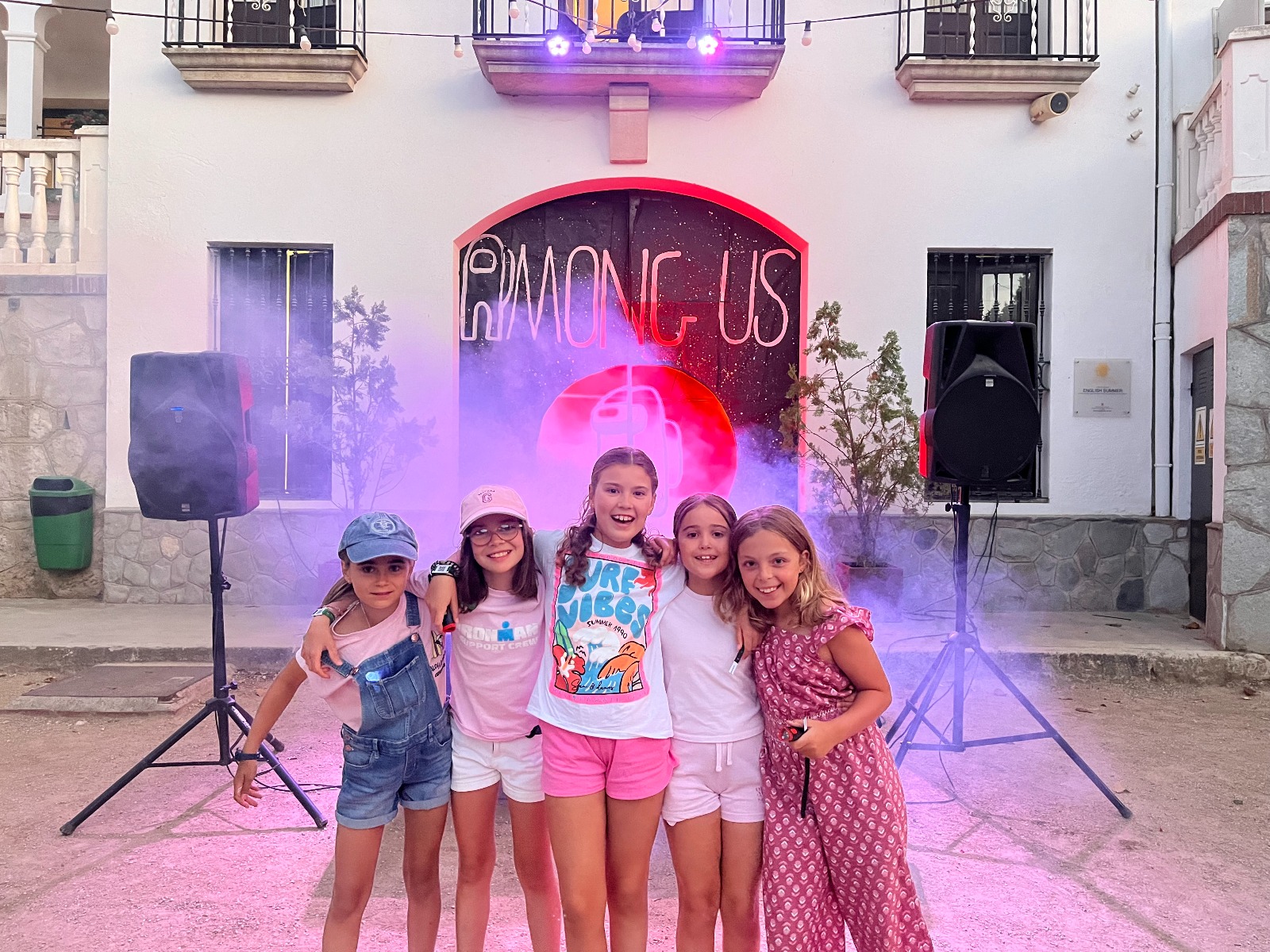
In an increasingly changing and multicultural world, academic knowledge is not the only thing that matters—personal and social skills that allow children to adapt, communicate, and grow in any environment are equally important. These are the so-called soft skills, and in summer camps they play a fundamental role in participants’ learning and development.
Beyond English, coexistence, friendship, and the unique experiences lived at camp, children acquire a set of skills that will accompany them throughout their lives.
What are soft skills?
Soft skills are social, communication, and emotional abilities that influence how we interact with others, how we solve problems, and how we face everyday challenges. Unlike technical skills (hard skills), these cannot be learned from a book—they are acquired through practice, coexistence, and experience.
In our camps, children and teenagers discover an ideal environment to practice these skills in a natural and fun way, without realizing they are training abilities that will be key to their academic and professional futures.
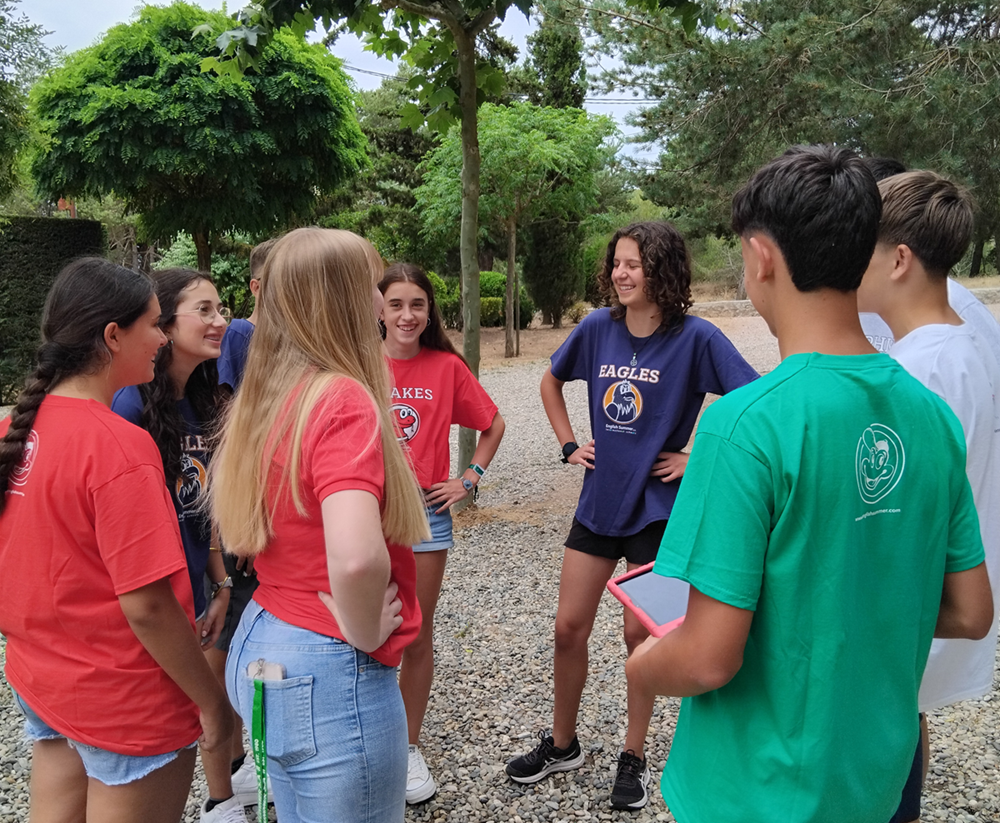
The main soft skills developed in our camps
Communication and self-confidence
Children take part in activities in English, team games, and dynamics that encourage them to express themselves clearly, both in their native language and in a second language. Little by little, they lose the fear of speaking in public and gain confidence when sharing their ideas.
Teamwork
Life at camp is full of moments that require collaboration: from organizing a sports activity to preparing a performance for the talent show. Here they learn that joint effort achieves better results than individual work, fostering camaraderie and empathy.
Leadership
In many activities, children take on roles of responsibility. They learn to guide, motivate, and organize their peers, understanding that being a leader does not mean giving orders, but rather inspiring and helping the group to achieve a common goal.
Problem-solving and adaptability
Every day at camp is different: new challenges, surprise activities, small debates, or changes in routine. In this context, children develop a flexible attitude and the ability to find creative solutions—two essential skills in adult life.
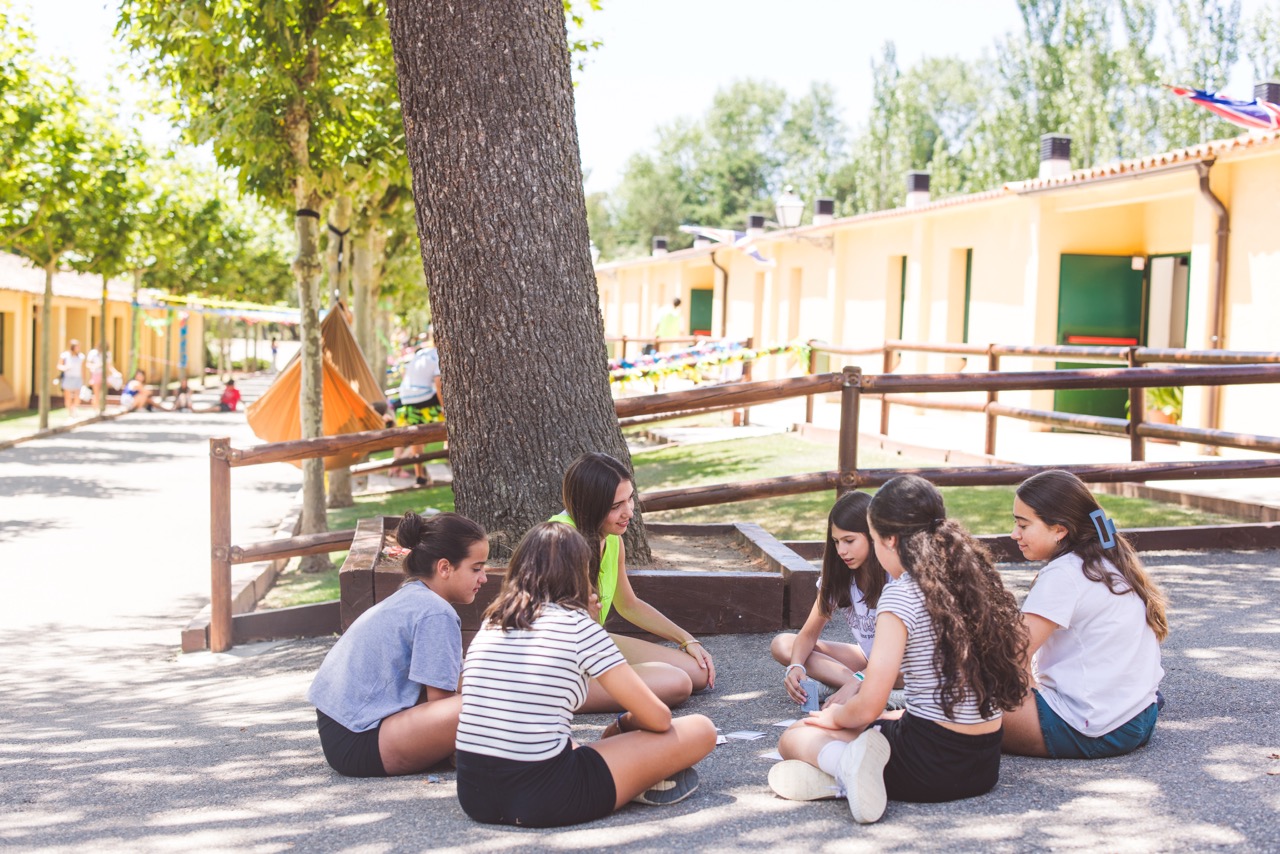
Emotional intelligence
Living with other children in an environment different from home helps them manage emotions such as frustration, joy, homesickness, or excitement. They learn to put themselves in others’ shoes and to express their feelings in a healthy, positive way.
Autonomy and responsibility
Sleeping away from home, organizing their belongings, following schedules, or taking part in activities without the direct supervision of their families teaches them to be more independent and responsible. This experience strengthens their maturity and self-esteem.
Creativity and innovation
From artistic workshops to group projects, camps offer multiple spaces where children can unleash their imagination and creative thinking—skills that are highly valued in any field.
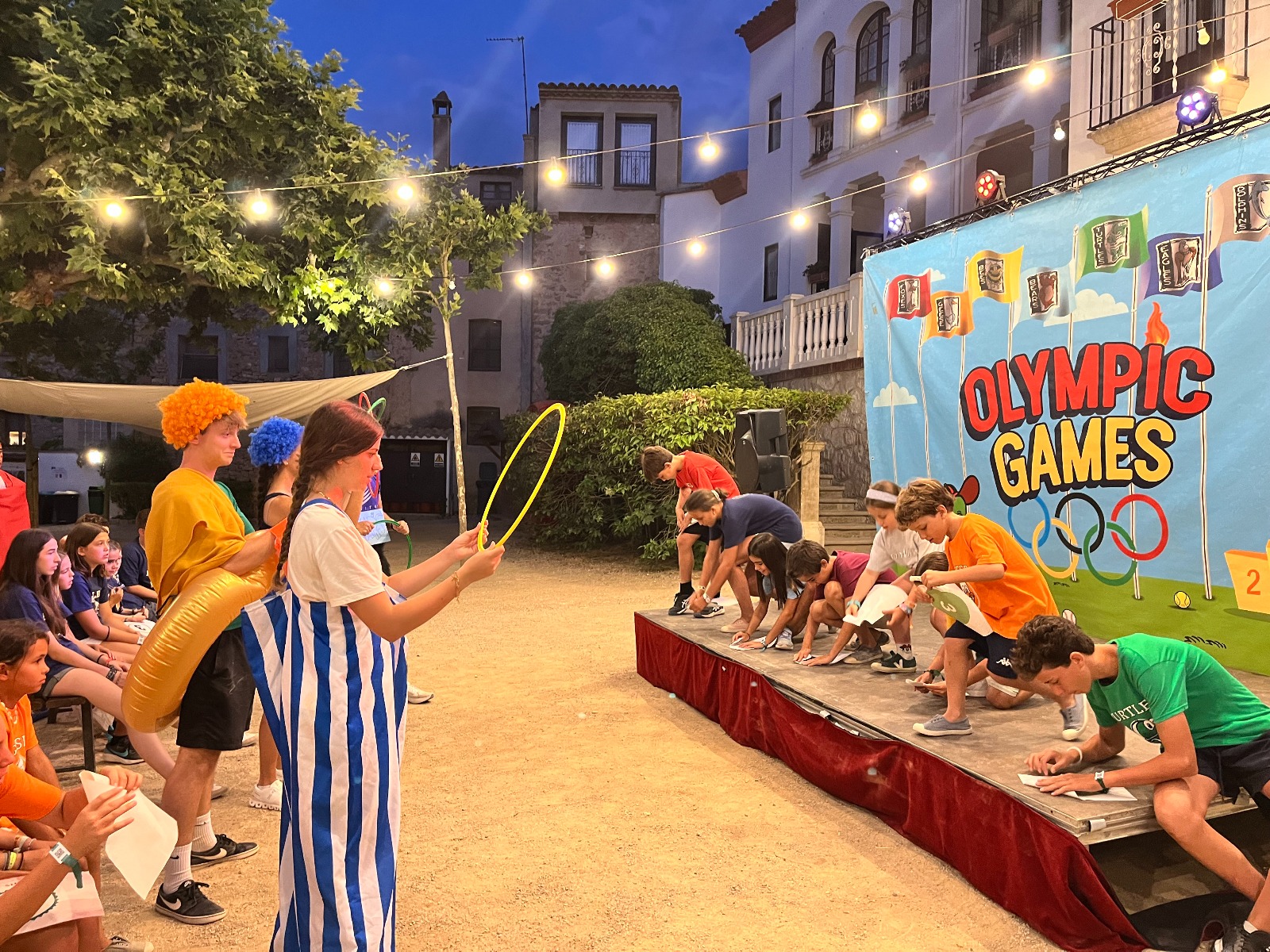
Long-term benefits of soft skills
The soft skills acquired at camp go far beyond the summer experience: they accompany children in their school life, in future job interviews, and in their personal relationships.
- They improve academic performance thanks to discipline, organization, and motivation.
- They increase the ability to adapt to new situations.
- They make it easier to integrate into study, sports, or work teams.
- They foster self-confidence and self-esteem. 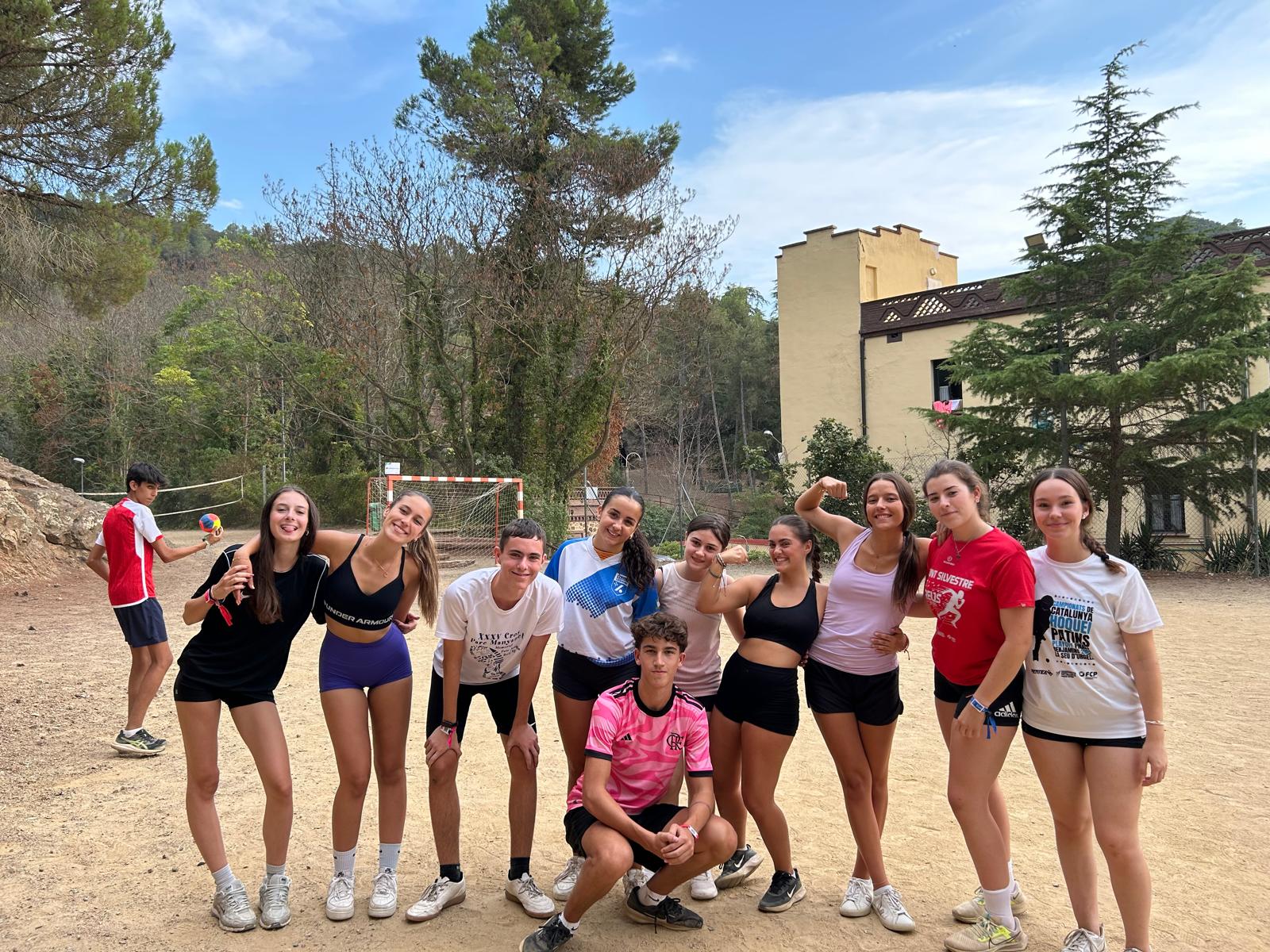
Ultimately, soft skills are a passport to the future, and at English Summer S.A. we work to provide a safe, fun, and enriching environment where each child can develop them while enjoying an unforgettable summer.
Because we know that the combination of language learning, recreational activities, and personal growth is the perfect formula for children to grow up happy and prepared for tomorrow’s challenges. Our camps are not only an opportunity to improve English, but also to learn skills that are useful in every area of life.

